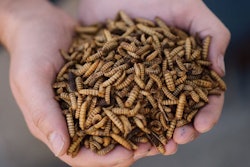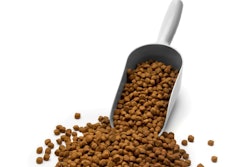
Pet owners want dog, cat and other pet foods to provide health and wellness benefits beyond basic nutrition. As pet owners have become more aware of the interactions among microbes in human digestive systems and aspects of health, pet food ingredients' influence on the microbiome has become one area of consumer focus. Scientists conducted an experiment to determine how whole-grain rye, wheat and oats affect dogs’ gut microbiomes.
A wide array of microbes dwell in the crevices of dogs’ and cats’ intestines, forming complex communities called the microbiome. When it’s working well, the pet microbiome helps with digestion and influences a wide array of seemingly unrelated aspects of pet health. When it isn’t, dogs and cats may suffer inflammatory bowel diseases, inefficient digestion or other problems.
Experiment on whole grains' effects on dog microbiomes
In the study, printed before peer review by Research Square, scientists examined how whole grain rye, wheat and oats influenced fecal microbiota composition, short-chain fatty acids production and diet digestibility. Dogs in the study ate diets made with whole-grain wheat or rye vs refined cereal products or high- versus low-fiber diets alone.
Whole grain rye, wheat and oats contain bioactive compounds that may have a positive effect on gut microbiota composition and function when fermented by the bacteria in the digestive tract. Short-chain fatty acids produced during fermentation serve as substrates for metabolism and interact with receptors on intestinal cells to release metabolic hormones. The inclusion of different types of dietary fiber affects short-chain fatty acids production depending on bacterial species composition and solubility of the fiber.
To test how the three whole grains influenced dog microbiomes, Swedish University of Agricultural Sciences scientists fed twenty dogs three experimental diets, each for four weeks. The researchers collected fecal samples at the end of each diet period. Genetic analysis revealed that Lachnospiraceae and genus Bacteroides gut microbial groups were most affected by diet, with the lowest relative abundance following consumption of the rye diet. Fecal acetate and propionate were higher after the rye diet compared with the oat diet, with no effects on fecal dry matter. All three diets had similar apparent total tract digestibility of macronutrients.
Although the three whole grains had different effects on dog’s gut microbiomes, the scientists couldn’t say how those effects influenced dogs’ health.

















